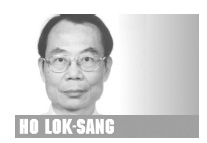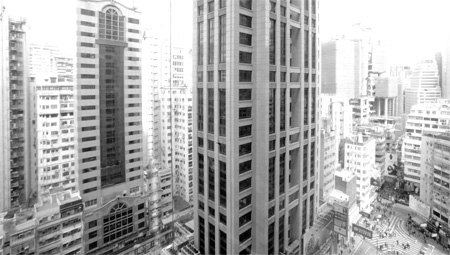Housing market: Government should not be too protective
Updated: 2010-12-29 07:09
(HK Edition)
|
|||||||||
|
Commercial and residential buildings stand in the Causway Bay district in Hong Kong, whose prices are unaffordable for many middle-class people in the city. Nelson Ching / Bloomberg |

The Party Secretary of Shenzhen, Wang Rong, had the following comment to make about the hot housing market: "Everybody feels the pressures from high cost of living in Shenzhen. But the government cannot therefore suppress the housing price from 20,000 yuan per square meter to 10,000 or 8,000 yuan. That would not be compatible with the law of markets. But we can provide more housing for the poor."
It's high time bureaucrats in Hong Kong understood this principle and started working accordingly. After all, Hong Kong is known to be the bulwark of free market economy in the world.
There is a widespread belief that Hong Kong's high housing prices are due to speculative pressures, as if speculative pressures had an independent effect on housing prices. It is also believed that once speculative pressures are taken off, houses would be a lot more affordable. Nothing is further from the truth.
With historically low mortgage rates, demand for property outstripping supply for years, and an economy that is gaining in strength, why should anyone be surprised at the surge in housing prices?
It is true that speculators buy, but they also sell. One must prove that speculators are really reducing the net availability of homes to "users", and that such "net absorption" has risen over the years. Surely, if the net absorption is relatively stable, it should not accentuate the housing price increase.
It is also true that in a rising market, speculators pocket gains. What happens when someone sells a flat at $3 million to a speculator, who sells for $3.6 million to a user after six months? The speculator pockets $0.6 million profit. But without the speculator's role, the flat today would probably still cost $3.6 million. The capital gain would have gone to the seller or to the user-buyer. The price increase thus mainly reflects a change in market conditions.
Mr Shih Wing-ching, the chairman of Centaline Property Agency Ltd, recently wrote two interesting and well reasoned pieces on the role of speculators, who, according to him, buy houses at a price that sellers are happy to sell, when users are still hesitant about buying; and that they sell to users at a price that buyers are happy to buy, when market conditions have convinced the users that the price is still reasonable. Speculators therefore generally increase liquidity in the property market. Their role is especially valuable to developers who need cash for further property development. It is also inappropriate to portray speculators as anti-socials.
From the point of view of the monetary authority and the government, both of which should be concerned about systematic risks, the main challenge is not so much to guard against prices becoming "excessively high" as to control risks through controlling leverage. Indeed, if the US had taken steps to ensure that for each purchase of homes, there is a reasonable down-payment and that the borrower had met the normal criteria, the sub-prime crisis would never have occurred. Paradoxically, the sub-prime crisis in the US reflected the failure of democratic polity. The short-term interests of politicians who were anxious to please their constituents were instrumental in excessive forbearance of extreme leverage and the watering down of loan standards. Both Republicans and Democrats had acted irresponsibly to promote homeownership.
So is there no need to worry about the housing price bubble? My simple answer is "no", so long as the government has a consistent policy to supply housing that meets Hong Kong's long-term demand. Yes housing prices may fall, and falling home prices may hurt, but that is just fine, and indeed necessary for homebuyers to learn that there are always risks in any investment! The government and the monetary authorities cannot and should not be too protective. They should at the most guard people against risks.
The SAR government has taken the first step to offer an annual housing supply target, which I have advocated for years. The 20,000-units-a-year target for private housing and the 15,000-units-a-year target for public housing are probably on the low side. It is a far cry from the 85,000-units-a-year target announced by the former Chief Executive Mr Tung. The 35,000-units-a-year target is based on take-up rates in recent years that may not reflect normal times, as we had seen during the Asian financial crisis, the bursting of the dotcom bubble, SARS and the global financial tsunami. A more reasonable target probably lies somewhere between these extremes.
The author is director of Centre for Public Policy Studies, Lingnan University.
(HK Edition 12/29/2010 page2)
